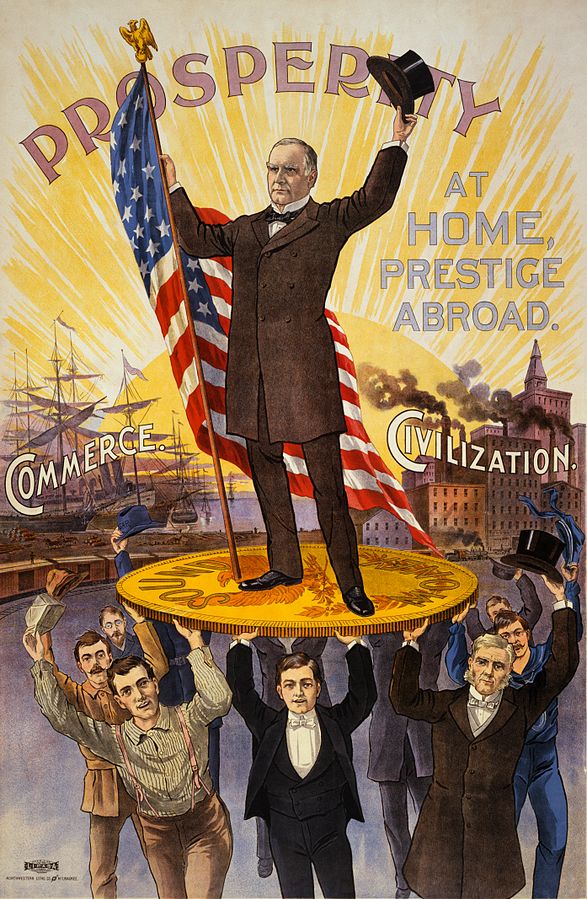Dr. Samuel Gregg claims culture, not just institutions, drive economic prosperity. It’s a shame that Israeli economic culture supports the opposite.
A free market is not just useful, it is vitally important, says Dr. Samuel Gregg · You can’t develop a free market economy without an appropriate supporting set of cultural values. This is why Argentina is in economic freefall, while Australia is on the list of the richest countries in the world · The problem in Israel? Political tradition supports centralization and government control

After finishing his lecture to graduates of Tikva programs, Dr. Samuel Gregg held a Q&A session. A member of the audience commented that the Israeli public attributes all the great accomplishments in Israel to the “state”. The great Zionist projects after Israel was established are identified as those of the State of Israel. Bringing in millions of Jews, developing the economy, and one could also add: Israel’s very survival through military victories and power.
This is a hard nut which needs to be cracked in order to effect the change in culture and values which is necessary for ensuring a free and open economy. Samuel Gregg, director of research at the Acton Institute in Michigan, touched on a subject not present in Israeli public discourse in his lecture: the cultural foundation which allows certain economies to succeed and causes others to fail. As he put it so succinctly: “Why do states and economies succeed or fail?”
Just two years ago, this subject made headlines and caused a media row during the American Presidential elections. That was when in a lecture to donors in Jerusalem, presidential candidate Mitt Romney said that he attributes Israeli economic success to a “strong culture.” “I come here to this city and I see the accomplishments of people of this nation,” he said. “I see the power of culture and other things.” Romney compared the Israeli economy to the Palestinian one in terms of GNP and ruled: “You see such dramatic and prominent differences in economic vitality.” Later he said in a more philosophical tone: “if you can learn something from the history of the economy in the world, this is the lesson: culture is what makes the difference.”
The pseudo-intellectual outrage which erupted in the wake of Romney’s statements is a test case in how a profound truth turns into a distortion in the hands of those who support leaving the power in the hands of the state and fraudulent “social justice”. As if a statement on how culture can help the economy promotes the idea of “cultural superiority” – with racial superiority not far off, of course. This is one of the methods used by supporters of socialism nowadays to suppress any serious discussion of the profound questions of economic reform.
Not just rule of law
Samuel Gregg did not hold back when at the end of his lecture before Tikvah youth, he clarified what’s at stake: “Civilizations collapse not from an outside attack but are wiped out by internal collapse,” then going on to quote Arnold Toynbee. “Civilizations die by suicide, not murder.”
Harsh words, you might say. Dr. Gregg himself occupies a position which does not exist in Israel to the best of my knowledge – an economic philosopher. Those who are exposed to the statements of economic experts in Israel – and it’s hard to avoid exposure to the endless TV and radio debates and economic conferences from Caesaria and Eilat – will always hear discussions in terms of practical benefit. If free enterprise and free markets are mentioned, it is on a purely utilitarian basis. The economic technocrat from Israeli universities or from various social think tanks will dig no deeper into the philosophical foundations than the value of equality.
“I am convinced that ideas can change a society for the better, and they can also influence it for the worse,” Greg said. “Why did some societies succeed and other societies fail. Why are Chile, Hong Kong and South Korea countries which succeeded. Why are China and India on their way out of poverty? And at the same time other countries like Venezuela are moving backwards.”
But Gregg said that he is suspicious of the common explanations of free market theoreticians who immediately bring up the issue of social institutions such as the rule of law and free trade. “There is no magic bullet which kills the poverty dragon,” he stated. In fact, the question is how to cause various societies to adopt a vision of prosperity and plenty and move from a condition of a static to a dynamic society.
“To deal with culture and social institutions as factors which shape an economy – this is a fairly new approach. The tendency is to think of this as a phenomenon which can’t be measured; but the fact that one cannot measure and quantify something – doesn’t mean it doesn’t exist. These are economy-shaping values. Edmund Phelps, winner of the Nobel Prize in Economics, discussed the question of differences between Europe and America. He came to the conclusion that the reason why productivity is a matter of institutions, bureaucracy and so on, and the United States is not exactly a group of banana republics.”
“Phelps thought that the difference between America and Europe is embedded in the fact that the American economy is affected by the values which people there believe in, like freedom. That was his intuition and he found support for this in the polls he conducted. The attitude of people in America to changes and economic freedom is more positive than in Europe.” In Europe, the economic and political culture is so entrenched that it creates inflexibility among the various elites towards any difference in thought. “They learned there not to value values like economic freedom,” says Gregg.

Corporate Europe
The face of the European economy is the result of what Gregg called “corporative economic institutions.” This is different than what we know as international corporations. Corporative institutions combine wealth, labor and government: the combination of large industrial branches along with powerful labor unions, which become “coordinated capitalism” in the hands of the central government. This still has an echo in local Israeli tradition in the form of the concept of the “planned economy” or “economic planning”.
This means direct governmental involvement in the economy through direct subsidies and governmental supervision of unions and businesses. Gregg says that corporatism has deep roots in Europe, listing some of the names which still profoundly affect current day Europe’s political and economic outlook. Mussolini, for instance. The Italian Duce, whose weaknesses were already identified by Jabotinsky, who strongly criticized him. And Franco, the Caudillo? And Hitler, the German Fuehrer? And Dolfuss, the Austrian fascist? Despite all the instinctive distaste for this discovery, one has to admit that this heritage has left behind a socio-political approach which affected not only Europe, but also FDR and Israel with its heritage of an all-powerful central union.
“In the form of a soft corporation where the workers are integrated into management, it exists until today,” Gregg pointed out. “All these institutions delay and stop economic growth. Europe as a result is far less competitive. And they still refuse to change. The dominant institutional values lead to top-down organization, forced settlements, defense of the establishments. The value choices preferred by the Europeans are first and foremost – equality before mobility, security before freedom, stability over creativity.”
“That doesn’t mean that there is no need for values like equality, security and stability. But they will always give them priority over mobility, creativity and freedom.”
You need to love the free market
The example Dr. Gregg used to most starkly demonstrate how economic culture and values separate a successful economy from a failing one was that of Argentina and Australia. In the beginning of the 20th century, both were in the list of the top ten richest countries in the world. Both are countries of immigrants, most of whom came from Europe. So why is Australia today the third richest country in the world while Argentina is far behind? “Argentina has economic degeneration, corruption, political and social instability and a weak judicial system. There is no economic freedom in Argentina. It is ranked 167th on the global rankings for economic freedom,” Gregg says. “It has a populist economic culture and ties between parties and businesses. The Peronist values have remained in place despite all efforts to enact reforms.”
“You can free the economy as much as you like, but if people don’t like economic freedom and are not committed to the rule of law and are waiting for the intervention of the state – nothing will help.”
At this point, I felt like he was talking about Israel, not a South American soccer empire. Even when he described the elites which run Europe, it sounded all too familiar: “the European elites are homogenous and detached from the business reality of the world. They serve as a basis for long and permanent careers. These members of the elite go from government to government. These people do not rub elbows with real life. They’re inside a closed echo-chamber and they are imbued with deep sense that they must continue to rule,” Gregg said, practically taking the words out of our mouth.
But perhaps the most important message he passed on and the lesson which needs to be taken into the cold utilitarian world of Israeli economic thought is the issue of fighting for free market ideas in the arena of public opinion. “For this you need leaders committed to the idea, imbued with profound moral conviction,” Gregg said. “We need a moral position in favor of the ideas of a free economy and against a government-business partnership.” And here comes the great stumbling block: “What can you do, most conservatives are terrible at presenting moral positions in favor of the necessary policy and reforms for a free economy.”
Citizens generally tend towards what Gregg calls a “fiscal kleptocracy”. Voters in many countries tend to favor leaders who promise to take from some and give to others. “The Jews,” he said, “are the nation that built the West. The West chose mediocrity. As a nation, you are still young and brave enough to effect the change.”

The protest, the protest
Gregg is correct, but the weight of the cultural economic heritage in Israel is tremendous, and it works against the necessary change. He mentioned the German chancellor Gerhard Schroeder, whose government almost fell due to the reforms he enacted. Many attribute the Likud’s fall to a party of only 12 mandates in the 2006 elections to the economic reforms led by then-Finance Minister Netanyahu in 2003-2005. It doesn’t matter if this is true or not; it is enough that a party that enacted some of the most important and successful reforms toward a free economy in Israel was punished for this in part by the voter rather than rewarded. Netanyahu’s fate in 2006 is a cautionary tale for many politicians in Israel. Netanyahu turned the economy from declining to thriving at least twice (2003 and 2009), leading to a growth rate of 5%, but he didn’t reap the electoral reward. To the contrary, his Finance Minister Yuval Steinitz is considered a mediocre to terrible minister in local public opinion even though his record is far better than present Finance Minister Lapid.
An unexpected and ongoing event took place in Israel: at the height of economic recovery and success, “social justice” protests broke out known as “the protest”. The Rothschild protest which broke out in July 2011 cut short a consistent move of the Israeli economy towards increasing freedom, a free market and the entry of large scale investment. This was a period which had lasted for 15 years and some will justifiably say that the process in favor of privatization, free enterprise and free markets started 25 years ago, in the Shimon Peres stabilization plan.
The “protest” is exactly what Gregg meant when spoke of “fiscal kleptocracy.” The government takes form the rich and especially those if middling income – in effect, robbing them – in favor of a more “just and equitable” redistribution. Ever since then, the Netanyahu-Lapid team have led the way towards clumsy government intervention in the real estate market, and every Knesset Member worth their salt is making law proposals for price fixing. The examples below are pinpoint but they cause Israel great damage. For instance, the Books Law – government intervention in a distorted market entirely destroyed it.
The law to close ‘Yisrael Hayom’ and the Supreme Court intervention in the energy sector – specifically the sea-borne energy reserves and the search for oil in the Golan Heights – signals to large international investors that they are not wanted in the State of Israel. Raising the minimum wage will hurt the labor market and cost the state five billion shekels a year. Israel’s future lies in an orientation towards southeast Asia – India, China, South Korea and Japan. But the entry of Chinese companies into the Israeli market is received with public reactions which border on racism.
A return to the momentum of reforms which will jump-start the Israeli economy and increase competition is vital, but harder than in the past. The reason is that like Argentina and Europe, represented by Israeli elites as a socioeconomic and political model to follow, the moral argument has been entirely co-opted by the advocates for government intervention and economic centralization. “Rights and equality” are celebrated as supreme values, while “freedom” and certainly “economic freedom” don’t count. The fiscal kleptocracy of the planned socialist economy has gotten a face lift, and it’s succeeding wildly in the unfree market of ideas.
English translation by Avi Woolf.
To receive updates on new articles in English, join Mida on Facebook or Twitter or join our mailing list.



